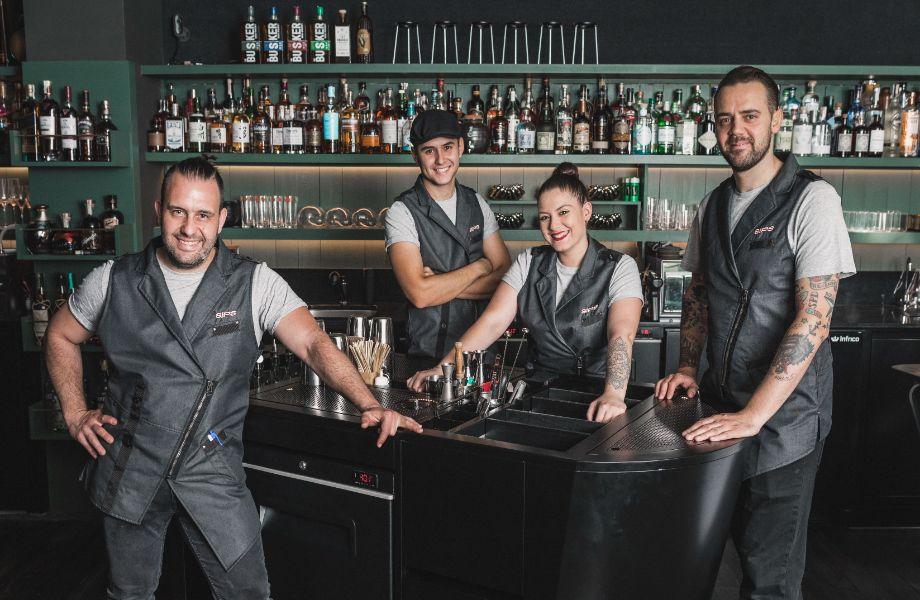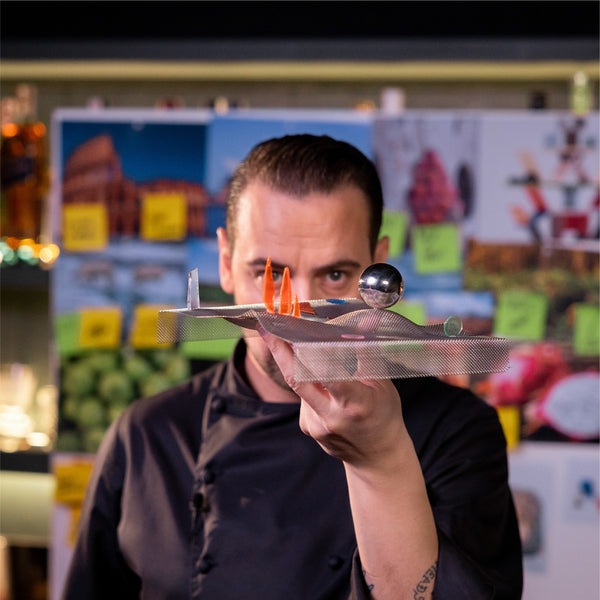
The Psychology of Bartending: How to Read the Room and Own the Bar
Share
The Psychology of Bartending: How to Read the Room and Own the Bar
Introduction: Why Emotional Intelligence Is Your Secret Weapon
Behind every great cocktail is a bartender who knows more than recipes — they know people. In the fast-paced, high-pressure world of hospitality, technical skill is only half the job. The other half? Emotional intelligence, presence, and the ability to read the room.
Whether you’re shaking up a Negroni at a five-star hotel or serving whisky neat at a neighbourhood bar, understanding human behaviour is what transforms a bartender into a true artist.
1. Understand Energy, Not Just Orders
Elite bartenders don’t just take drink orders — they read the energy of the room. Is it a quiet Tuesday with solo guests decompressing? Or a packed Friday night where people want theatre and banter? Your tone, pace, and presence should adapt to the vibe.
Pro Tip:
-
Scan the room every 5–10 minutes.
-
Adjust your music, lighting, and tempo accordingly.
-
Mirror your guest’s energy — quietly confident or energetically upbeat.
2. Learn to Read Body Language
Before a word is spoken, your guest has already told you how they feel. World-class bartenders pick up on subtle cues: posture, facial expression, eye contact (or lack of it). This shapes how you engage.
Signs to watch for:
-
Crossed arms or eyes darting to the door? Keep it brief.
-
Leaning in, eye contact, relaxed smile? They want connection.
-
Fidgeting or scrolling? They’re likely waiting or unsure.
Adjust your service based on these cues, and your guests will feel seen — without needing to say a word.
3. Manage Conflict Without Escalation
Bartenders are often the first line of defence when tension arises — whether it's an over-served guest, a loud group, or a couple arguing. Your response can either defuse or ignite the situation.
Golden rules:
-
Stay calm and neutral — never mirror aggression.
-
Address issues discreetly.
-
Use inclusive language like, “Let’s keep it comfortable for everyone.”
Pro Tip: Have a pre-agreed system with your team for flagging problem behaviour — a nod, phrase, or hand signal.
4. Know When to Talk — and When Not To
Some guests want to chat. Others want silence. Knowing the difference is one of the most underrated bartending skills.
Practice active listening:
-
Ask open-ended questions to gauge interest.
-
Don’t overtalk. Let silence do some of the work.
-
Share stories only if they serve the moment, not your ego.
The best conversations behind the bar are often short, genuine, and well-timed.
5. Emotional Resilience: The Unspoken Bartender Skill
Professional bartenders deal with more emotional energy in a single shift than most people do in a week. You’re part performer, part therapist, part caretaker. Over time, this can burn you out — unless you build resilience.
Ways to protect your energy:
-
Develop a post-shift wind-down ritual (walk, journal, music).
-
Don’t take guest moods personally.
-
Talk to fellow bartenders — they get it.
Looking after yourself emotionally is non-negotiable if you’re in this game for the long haul.
Conclusion: Own the Bar, Don’t Just Work It
Being a world-class bartender isn’t just about technique — it’s about awareness, empathy, and control. The best bartenders don’t just work the bar; they own the environment, using psychology as subtly and skilfully as their tools.
At The Art of Shaking, we believe every bartender can master this. You just need the right mindset — and the discipline to practise it.
Ready to take your presence behind the bar to the next level?
Explore our courses to find out more.

